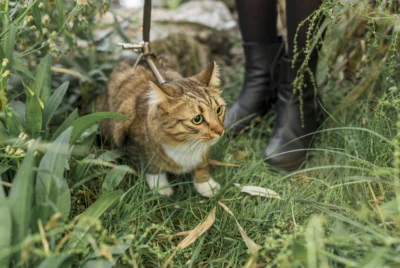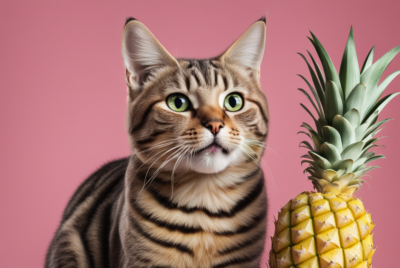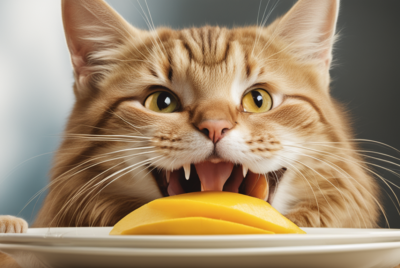Are Carnations Toxic to Cats? Don’t Let Beauty Be a Danger
Cats and their natural curiosity can lead to some unexpected mischief, especially when it comes to beautiful houseplants and colorful bouquets. Who can resist a playful bat at those enticing petals? But behind the beauty of some blooms can lurk a hidden danger. While carnations might seem like a harmless addition to your home décor, they, unfortunately, fall into the category of toxic plants for our feline friends.
Understanding Carnation Toxicity
The reason carnations can be problematic for cats lies in a group of compounds called saponins. These saponins are found within the carnation plant itself, which belongs to the Dianthus species.
When a cat ingests carnation plant matter, these saponins irritate their digestive system. This irritation can lead to unpleasant consequences for your feline friend, and it’s essential to be aware of the signs.

Symptoms of Carnation Poisoning in Cats
If your curious cat has taken a bite out of a carnation, you might notice some signs of tummy trouble. These can induce vomiting and diarrhea. Think of it like your cat’s way of trying to get rid of anything upsetting its stomach.
In some cases, skin irritation might occur if your cat comes into direct contact with the carnation’s sap. This can happen if they rub against the flower or try to take a bite and get some sap on their fur. Additionally, your feline friend might lose their appetite and become dehydrated, especially if vomiting and diarrhea are present.
What Happens When a Cat Eats a Carnation
When a cat ingests carnation plant matter, the saponins we mentioned earlier irritate their digestive system. Imagine tiny, unwelcome guests causing a bit of a ruckus in your cat’s stomach. This irritation can lead to vomiting as the body tries to expel the plant material. Similarly, diarrhea might occur due to the disruption in the digestive process caused by the saponins.

Diagnosis of Carnation Poisoning
If you suspect your cat has eaten a carnation and they show concerning symptoms, seeking veterinary attention is crucial. The veterinarian will perform a physical examination to assess your cat’s overall health. This might involve checking their temperature, listening to their heart and lungs, and feeling their abdomen for any abnormalities.
Blood tests, which include complete blood cell count, and potentially a blood smear test urinalysis (or simply urine analysis) might be recommended. This is necessary to get a clearer picture of their condition. These tests help rule out other causes of your cat’s discomfort and confirm carnation poisoning if that’s the culprit.
These tests are the initial steps to conclusively diagnose carnation poisoning in your feline friends. It would also be helpful if the vet is aware of your feline’s medical history.
Treatment for Carnation Poisoning
Fortunately, carnation poisoning is usually mild. In most cases, supportive care is enough to help your cat recover. This might involve administering intravenous fluids to address dehydration caused by vomiting and diarrhea. Think of these fluids as a way to help your cat rehydrate and feel better. The veterinarian might also prescribe medication to manage these digestive issues, aiming to soothe the irritation caused by the saponins.
Also read: Is Peppermint Oil Safe for Cats? Protecting Your Feline Friend
Preventing Carnation Poisoning
The best way to ensure your cat’s safety is to prevent them from accessing carnations altogether. Keep bouquets and flower arrangements out of their reach. Consider placing them on high shelves or in closed rooms where your cat can’t get to them.
If you’re looking to add a touch of floral beauty to your home, consider opting for non-toxic alternatives like African violets. These charming flowers are safe for cats and come in a variety of vibrant colors.

Common Concerns for Cat Owners
It’s important to differentiate carnation poisoning from other plant toxicities. For instance, tulips are highly toxic to cats and can cause severe health problems.
It could also be that your cat consumes sweet williams flower, which may cause only mild toxicity to your feline friends, but is nonetheless dangerous to their health.
Here’s the key takeaway: if you suspect your cat has eaten any part of a plant, regardless of the type, immediate veterinary attention is critical. Early intervention can make a big difference in your cat’s recovery.
The Curious Case of the Cat and the Carnation
Cats are naturally curious creatures, and vibrant flowers like carnations with their ruffled blooms can be irresistible to them. Imagine the temptation – a colorful, textured object just begging to be explored! To prevent any potential issues, keep these colorful temptations out of your cat’s path.
Consider placing bouquets in sturdy vases that won’t easily tip over, or opt for dried arrangements that pose no risk of ingestion. Remember, a curious cat might see a carnation as a new and exciting toy, unaware of the potential discomfort it could cause.
Beyond Carnations: Other Toxic Plants to be Aware Of
Carnations are just one example of plants that can be harmful to cats. Lilies, for instance, are highly toxic and can cause kidney failure. Familiarize yourself with a list of toxic plants for cats and keep them out of your home environment. The ASPCA website is a valuable resource for pet owners seeking information on pet safety and potential toxins.
Here’s a helpful tip: when choosing new plants for your home, do a quick online search to confirm they’re safe for your feline friend. A little research can go a long way in keeping your cat healthy and happy.

Keeping Your Feline Friend Safe
Early veterinary care is essential if you suspect your cat has ingested a carnation. Monitor your cat’s condition closely. If symptoms worsen or additional signs like skin irritation or a significant decrease in appetite appear, consult your local veterinarian immediately.
Be reminded that catching any potential health issue early on can make a big difference in your cat’s recovery and overall well-being. Don’t hesitate to seek professional help if you’re concerned about your cat’s health – it’s always better to be safe than sorry.
Carnation Sap and Skin Irritation
While carnation ingestion can cause digestive upset, the sap itself can also be an irritant. Direct contact with carnation sap might lead to contact dermatitis, causing skin irritation in your cat. This can manifest as redness, itching, and discomfort on the areas of skin that came into contact with the sap.
If you notice your cat exhibiting these signs, gently wipe away any remaining sap and monitor the affected area. In most cases, mild irritation from carnation sap will resolve on its own. However, if the symptoms persist or worsen, consult your veterinarian for guidance.
A Feline’s Best Friend: Prioritizing Your Cat’s Health
As a responsible pet owner, it’s your duty to ensure your cat’s safety and well-being. This includes preventing them from accessing toxic plants like carnations. By creating a safe environment, you can help your furry friend live a long and healthy life.
Here are some additional tips: keep your cat’s scratching post readily available to redirect their scratching instincts away from houseplants, and consider planting cat grass as a safe and healthy alternative for your feline companion to munch on.
Most cats will divert their attention from these colorful plants if given scratching posts or other cat toys for their self-entertainment.

Living a Colorful Life with Your Cat Safely
There’s no need to give up on beautiful flowers in your home! Opt for non toxic flowers as among your top options like African violets to add a touch of color without putting your cat at risk. With a variety of vibrant blooms to choose from, you can find the perfect way to brighten your space while keeping your feline friend safe.
Here’s another tip: consider hanging baskets or placing flowers on high shelves where your cat can’t reach them. This way, you can still enjoy the beauty of flowers without compromising your cat’s well-being.
Conclusion
Wild carnations, while beautiful, are mildly toxic to cats. By understanding the potential risks and taking preventive measures, you can keep your cat safe and healthy. Note that early veterinary attention is crucial if you suspect your cat has ingested a carnation. With a little planning and awareness, you can ensure a harmonious coexistence between your love of flowers and your furry companion.
Also read: Are Air Plants Safe for Curious Cats?




